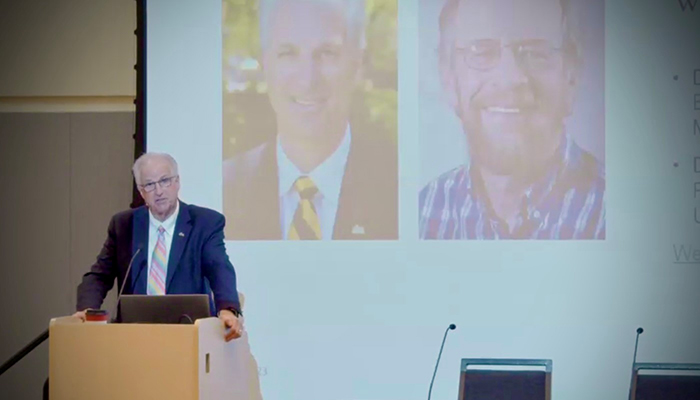
The inaugural Municipal-Academia Cooperation for Climate Action (MACCA) conference was held at George Mason University’s Mason Square on April 17, 2023. The event was hosted by the Schar School of Policy and Government’s Center for Energy Science and Policy, Penn State University’s Sustainability Institute, the Pennsylvania Environmental Resource Consortium, as well as three Mason entities: Virginia Climate Center, Institute for a Sustainable Earth, and Center for Resilient and Sustainable Communities.
Academics, industry professionals, and local leaders gathered at the conference to develop effective pathways for collaboration on energy and climate action for local communities. The conference included panelists who represented federal and state partners, university community engagement leaders, experts on climate resilience, and students working on local climate action plans.
Mason provost Mark R. Ginsberg spoke of the importance of bringing together this group of experts.
“The most important issue of our time—that of climate change—can’t be solved by a community, it needs to be solved by considering multiple communities working together ... by sectors working together … the university and community sector,” he said.
Keynote speaker Richard “Rip” Sullivan Jr., a member of the Virginia House of Delegates, talked about what could be done to lessen the gap between policy and implementation and echoed Ginsberg.
“This conference showcases how universities are in a unique position to help fill that gap—helping to translate laws into real actionable programs at the local level with an ability to reach large number of localities that just don’t have the staff or expertise on energy and climate,” he said. “Smaller localities need your help. They need the expertise that you and your students can bring to help them with their local climate action plans.”
For more information about the conference, visit the Center for Energy Science and Policy, or contact Joel Hicks (jhicks19@gmu.edu) or Paul Bubbosh (pbubbosh@gmu.edu).
